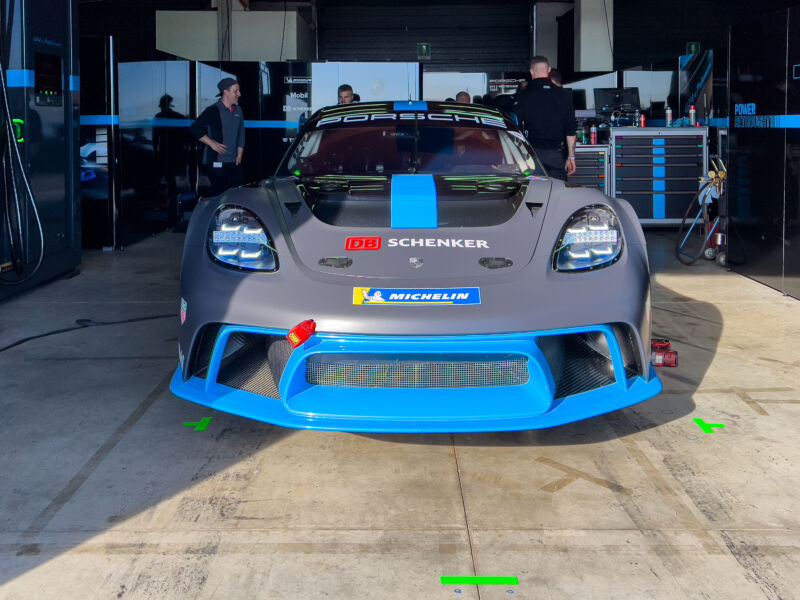
Enlarge / The exterior clues that this is a Porsche 718 GT4 ePerformance and not a 718 GT4 Clubsport are subtle; it's 140 mm (5.5 inches) wider, and the headlight projectors look more like a Taycan's than a Cayman's. But it's an all-electric car with more than a thousand horsepower on tap. (credit: Jonathan Gitlin)
FRANCIACORTA, ITALY—The auto industry is in the midst of a mass transformation as we move towards product lineups that are mostly or even entirely electric. Some are handling this transformation better than others, as supply chain problems caused by the pandemic and invasion of Ukraine add further complications. Witness the sorry state of Jaguar, which cancelled an electric replacement for the XJ sedan at the last minute, or the repeated electric vehicle-related missteps we've seen from Toyota, Honda, and Mazda of late.
There appear to be no such woes at Porsche, however. In 2019 it debuted the Taycan, a four-door electric sportscar that remains one of the best EVs on sale. Since then it's added new Taycan variants, two different flavors of EV wagon included, all built in a factory in Zuffenhausen, Germany that's already carbon-neutral. (Porsche's Zuffenhausen factory uses a very heavy mix of renewable energy and biogas from waste materials, and has been independently certified by Germany's DGNB.)
But Porsche isn't resting on its laurels. Fine though the Taycan is, it really is just the start of the OEM's electrified journey—as long as you aren't counting some of Ferdinand Porsche's very earliest vehicles, like the Egger-Lohner C2 Phaeton of 1898. Future battery EVs from Porsche will use an all-new flexible architecture called PPE—for premium platform electric—which the company is developing together with fellow VW Group sibling Audi (with Porsche taking the lead here).
Read 19 remaining paragraphs | Comments
